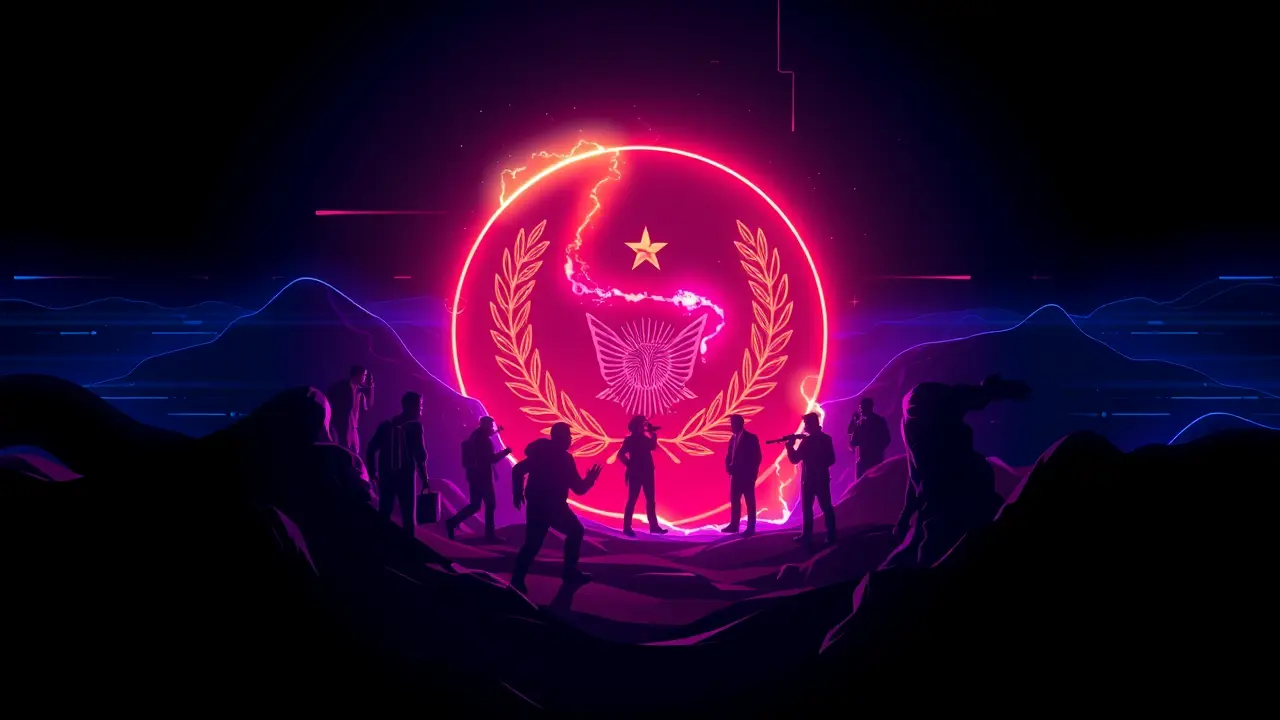Trump Authorizes CIA Covert Action in Venezuela
In a move that echoes the geopolitical gambits of a bygone Cold War era, the authorization of CIA covert action in Venezuela by the Trump administration marks a significant and perilous escalation in the long-standing campaign to unseat the regime of Nicolás Maduro. While the presidential directive, signed amidst the guarded silence of the West Wing, pointedly refrained from explicitly mandating a coup d'état, the very act of unleashing the Agency’s formidable toolkit of political warfare, economic sabotage, and psychological operations in a nation already teetering on the brink of collapse speaks volumes.This is not merely a policy shift; it is the opening of a new, shadowy front in a conflict that has already seen crippling sanctions, recognition of a parallel government, and veiled threats of military force. The historical parallels are stark and sobering.One need only recall the CIA’s pivotal role in the 1954 overthrow of Guatemala’s Jacobo Árbenz or the protracted and bloody covert campaigns in Nicaragua and Angola to understand the potential trajectory. The Venezuelan crisis, a tragic symphony of hyperinflation, mass exodus, and humanitarian catastrophe, now risks being amplified by the unpredictable and often brutal calculus of covert action.Expert commentary from seasoned intelligence analysts suggests the operational goals likely extend beyond simple regime change, aiming instead to systematically dismantle the Maduro government’s pillars of support: fomenting dissent within the ranks of the military, disrupting the illicit gold and oil networks that fund the regime, and amplifying the message of opposition leader Juan Guaidó through clandestine media channels. However, the consequences of such a path are fraught with peril.A failed operation could cement Maduro’s grip on power, allowing him to rally nationalist sentiment against a blatant foreign intervention. A successful one could plunge the country into a Libya-style power vacuum, where various armed factions, including the notorious colectivos and dissident military elements, vie for control over the world’s largest oil reserves.Furthermore, this authorization inevitably draws the ire of both Russia and China, who have substantial economic and strategic investments in Caracas, potentially transforming a regional struggle into a proxy conflict between great powers. The analytical insight here is clear: by choosing the covert path, the administration is betting that the application of calibrated pressure from the shadows can achieve what overt economic and diplomatic pressure has thus far failed to accomplish. Yet, as history has repeatedly demonstrated, once the genie of covert action is let out of the bottle, its movements are notoriously difficult to control, and the fallout often extends far beyond the initial target, reshaping the geopolitical landscape for decades to come.
Latest News
The charts are whispering what the true believers have felt in their bones for weeks—Dogecoin is carving out a bottom.
17 hours ago5 comments
The Institute for Fiscal Studies has thrown a stark warning onto Rachel Reeves's desk, urging the Chancellor to confront a potential £22 billion shortfall in
17 hours ago3 comments
Alright, let's break down this absolute heater of a performance from the Chicago Blackhawks, because if you missed this one, you missed a party.
17 hours ago5 comments
The ice was hot last night in the NHL, folks, serving up a slate of games that felt less like a regular season Tuesday and more like a playoff preview with a
18 hours ago3 comments
The XRP chart is painting a tantalizing picture for those with the stomach to withstand the relentless pressure from crypto's leviathans.
18 hours ago4 comments
It’s in the small shifts, the quiet recalibrations of a Thursday morning, where the most meaningful change often takes root.
18 hours ago4 comments
In a move that sent ripples of quiet confidence through the crypto ecosystem, blockchain intelligence firms tracked a monumental treasury allocation from
18 hours ago4 comments
In a move that would have drawn a nod of approval from historical figures like Churchill, who understood the delicate balance of power within democratic
18 hours ago2 comments
CH
Chloe Miller123k4 hours ago
wait what this feels like a bad idea tbh, we never learn from history smh
0
JA
Jamie Larson123k10 hours ago
idk this feels like a recipe for disaster tbh, haven't we learned from past interventions smh
0
MA
Maya Torres123k17 hours ago
another cia op tbh not sure this ends well for anyone smh
0
CA
Cameron Diaz123k17 hours ago
smh this feels like a rerun of a bad movie we've seen before idk if more chaos is the answer tbh
0
CH
Chloe Rodriguez123k20 hours ago
this feels like a plot from a spy movie that went straight to streaming tbh, idk how many times we gotta see this same story play out before we realize it never ends well
0
CH
Chloe Miller123k21 hours ago
this just feels like such a messy path tbh i wish we could just find a way for peace without all these shadow games
0
CA
Caleb Mitchell123k23 hours ago
that’s a fair point about the historical parallels, though i have to wonder if the administration has really thought through the potential for a power vacuum here it just seems like such a huge gamble tbh
0
